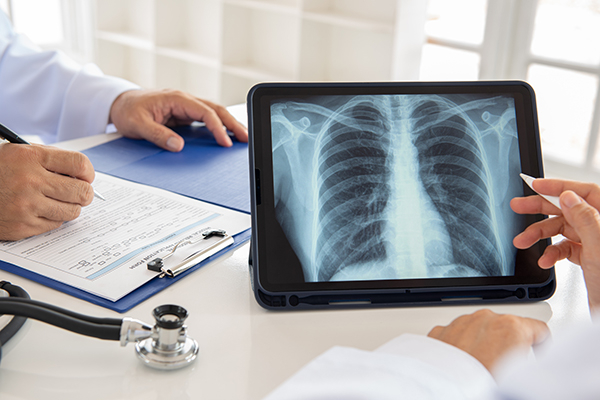
Dr. Silvia Aparicio, researcher at the Universidad Internacional Iberoamericana (International Iberoamerican University, UNIB), together with other researchers, evaluates and trains a deep learning model to improve the efficiency of pneumonia diagnosis.
Pneumonia is a serious respiratory infection that inflames lung tissues, affecting millions of people worldwide every year. This condition can be treated with medications such as antibiotics and antivirals, however, it is crucial to diagnose and treat it early to prevent complications and even death.
It is usually caused by fungi, bacteria or viruses that inflame the pulmonary alveoli, affecting people of all ages; mainly those with a weak immune system, asthmatics, those who smoke and drink, patients who have recently undergone surgery and those suffering from viral infections.
For decades, chest X-rays have been an important tool for diagnosing pneumonia. Typically, a skilled radiologist manually evaluates these X-rays to identify abnormal patterns and signs of infection. However, this process is time-consuming and accuracy may depend on the expertise of the practitioner. In addition, it can be difficult to provide accurate and timely interpretation, especially in regions where healthcare professionals are in short supply.
Deep learning models, such as convolutional neural networks (CNNs) and recurrent neural networks (RNNs), have shown promise in the automated diagnosis of pneumonia from medical images such as chest X-rays and computed tomography (CT) scans. These models are able to learn complex patterns and features by relying on large data sets to accurately identify abnormal lung conditions related to pneumonia. Research in this field continues to advance and improve tools for diagnosis and detection of the condition.
This study implements and evaluates six deep learning models, in which one called EfficientNetV2L stood out, showing promising results in the analysis of chest X-rays. This model overcomes traditional limitations by incorporating deep learning algorithms and artificial intelligence. Thanks to its powerful computational capabilities, it quickly analyzes images, enabling accurate detection of 94.02%.
This innovation not only improves the efficiency of pneumonia detection, but also has the potential to improve healthcare systems worldwide, as another advantage is its scalability. An advanced algorithm can automate the analysis of numerous radiographs, ensuring broader coverage for pneumonia screening programs. By being able to quickly review a large number of cases, healthcare professionals can prioritize patients with acute conditions to optimize resource allocation and improve overall patient care.
The development of this model marks a significant step forward in pneumonia screening. As research and advancements continue, the integration of this technology into existing healthcare systems could have a major impact on patient outcomes worldwide. In addition, leveraging the advanced capabilities of machine learning technologies could reduce the gap in access to care.
If you want to learn more about this study, click here.
To read more research, consult the UNIB repository.
The Universidad Internacional Iberoamericana (UNIB) offers the Master's Degree in Strategic Management with Specialization in Information Technologies. A program that develops the skills and capabilities of students to manage a systems and ICT management position or lead an organizational change project.